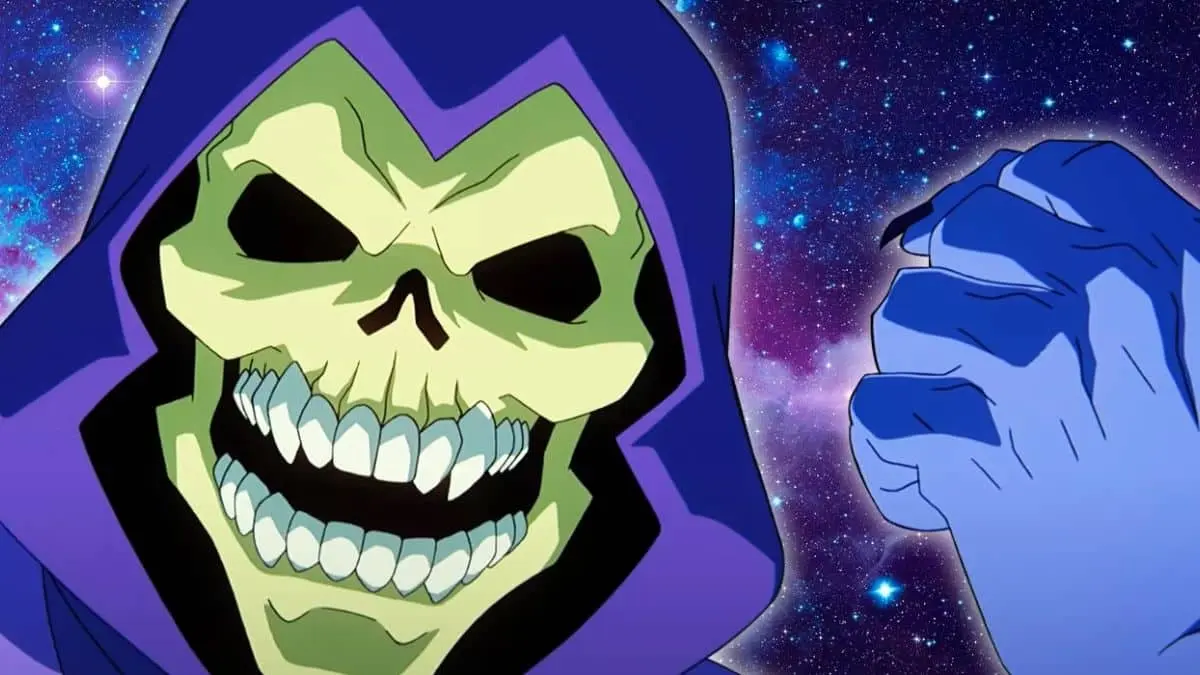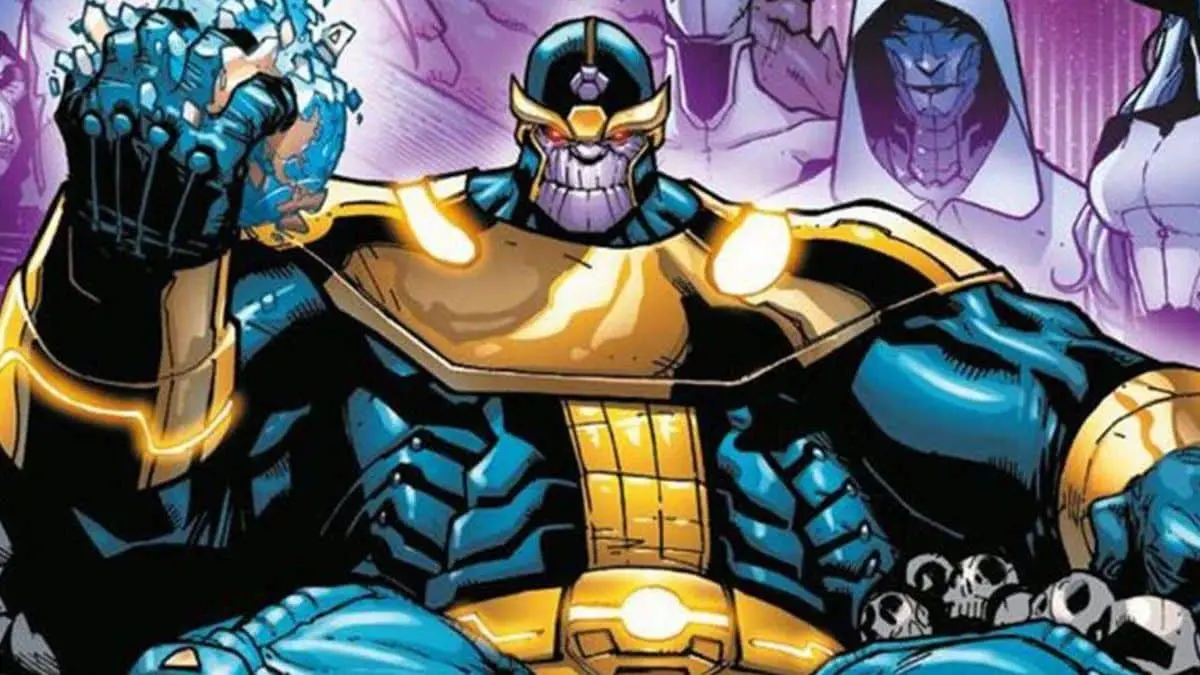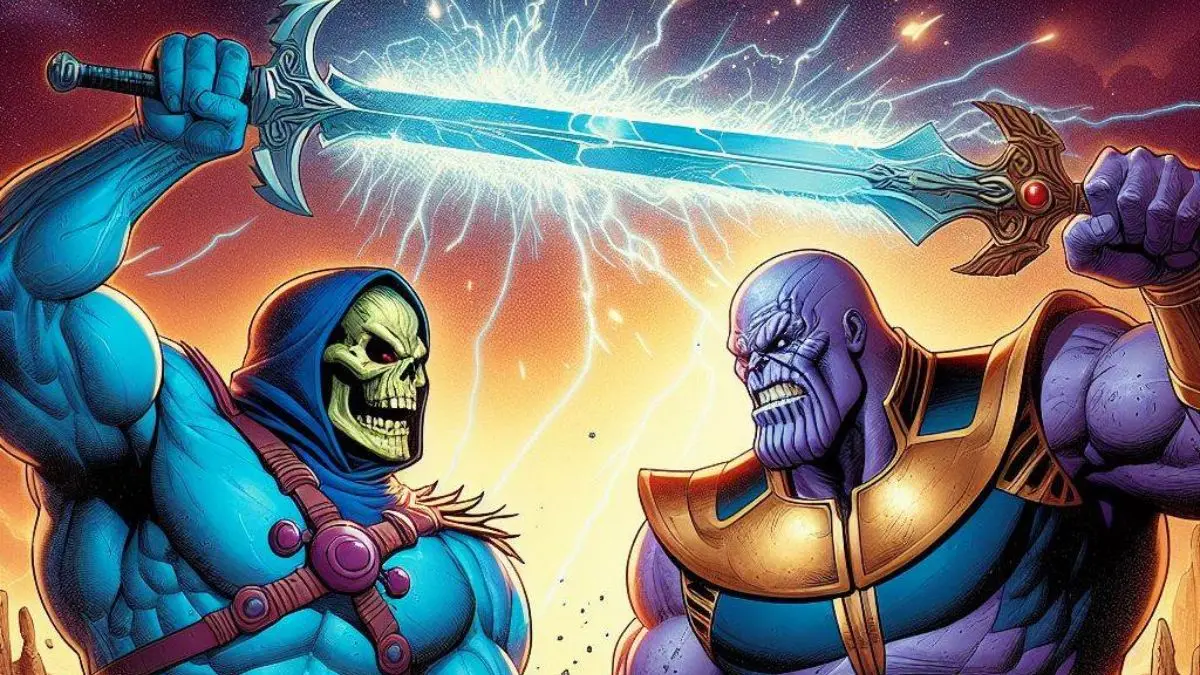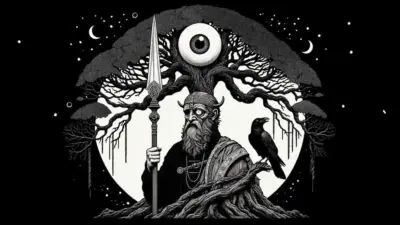You’ve seen them: towering, fearsome, and obsessed with power. Thanos, the Mad Titan from the Marvel universe, and Skeletor, the iconic villain from He-Man and the Masters of the Universe, have both left their marks as some of the most feared and memorable villains in pop culture. But What Makes Thanos From Marvel and Skeletor From He-Man Similar? Why do they resonate so strongly in the hearts and minds of fans as the ultimate antagonists?
At first glance, you might think they don’t have much in common. Thanos is a galactic threat, while Skeletor is a power-hungry sorcerer in a land of swords and magic. But dig a little deeper, and you’ll find that they share some fascinating similarities. Both are larger-than-life figures who embody the idea of ultimate evil, but their motivations, strategies, and personas go beyond mere villainy.
Let’s explore what makes Thanos and Skeletor so eerily alike, despite the fact that they hail from vastly different worlds.
What Makes Thanos From marvel and Skeletor From He-Man Similar?
The Obsession with Power
The most glaring similarity between Thanos and Skeletor is their unquenchable thirst for power. These characters aren’t content with a little influence here or there — they want it all, and they want it badly.
Thanos is famously obsessed with balance and the Infinity Stones. His pursuit of ultimate power stems from a belief that the universe is overpopulated, and the only way to bring balance is to eliminate half of all life. To do this, he seeks the six Infinity Stones, artifacts that would give him god-like power to snap away half the universe with a flick of his fingers.
Skeletor, on the other hand, is a dark sorcerer with his eyes on the throne of Castle Grayskull. His desire for power stems from his quest to rule Eternia and control all of its magic. Skeletor believes that by gaining the secrets of Castle Grayskull, he can bend the universe to his will, much like Thanos and the Infinity Stones.
What makes them similar is not just their desire for power but the extremes to which they’ll go to achieve it. Both characters represent the dangers of unchecked ambition, showing us what happens when a desire for control turns into a consuming obsession.
Endless Armies of Loyal (and sometimes bumbling) Followers
A villain is only as strong as the forces they command, and both Thanos and Skeletor come with their own loyal legions. While neither of them is shy about getting their hands dirty, they often rely on armies to carry out their bidding.
Thanos commands the Chitauri, the Outriders, and the Black Order — his most elite enforcers. The Black Order, consisting of superpowered beings like Ebony Maw and Proxima Midnight, play pivotal roles in helping Thanos track down the Infinity Stones and battle the Avengers. These followers not only fear Thanos, but they also revere him as a god-like figure.
Similarly, Skeletor leads an eclectic band of minions. While his followers like Beast Man, Evil-Lyn, and Trap Jaw might not match the power of Thanos’ Black Order, they serve as faithful (and occasionally incompetent) agents in his quest for Castle Grayskull. Skeletor’s minions often provide comic relief, but make no mistake — they’re still formidable in battle and dedicated to their master’s evil schemes.
Both Thanos and Skeletor inspire fierce loyalty, even if their subordinates sometimes bumble their way through missions. Their leadership styles might differ, but their ability to command fearsome forces is a key trait they share.

Single-Minded Pursuit of Their Goals
One of the reasons both Thanos and Skeletor are so terrifying is their unrelenting drive to achieve their goals, no matter the cost. Neither character shows much room for compromise or diversion from their ultimate mission.
Thanos’ journey in the Infinity War saga shows a villain willing to sacrifice anything to achieve his twisted version of balance. He isn’t driven by a desire to conquer for conquest’s sake — instead, he truly believes that wiping out half the universe is the only way to save it. Thanos is willing to kill his own daughter, Gamora, to secure the Soul Stone, showing the depth of his commitment to his cause.
Skeletor is similarly focused on his quest to conquer Castle Grayskull. While his schemes often get foiled by He-Man, Skeletor never gives up. His persistence and ability to bounce back after every failure make him a force to be reckoned with. Skeletor is driven by the belief that controlling the secrets of Grayskull will give him ultimate power, and he’ll stop at nothing to achieve that.
This unwavering commitment to their goals is a defining trait for both characters. They don’t get distracted, and they don’t change course — making them formidable foes for anyone who stands in their way.
Imposing Physical Presence
When you think of iconic villains, their physicality often plays a big part in why they’re so memorable, and both Thanos and Skeletor certainly have that imposing presence.
Thanos is a massive, hulking figure whose size alone is intimidating. His strength is legendary, and even without the Infinity Stones, Thanos is a warrior capable of going toe-to-toe with the likes of Hulk and Thor. His massive build and deep, booming voice (thanks to Josh Brolin’s performance) make him a villain you don’t forget easily.
Skeletor, while not as physically large as Thanos, has a menacing presence of his own. With his skull-like face, dark robes, and glowing yellow eyes, he’s the embodiment of dark magic and evil. Skeletor’s appearance alone strikes fear into the hearts of his enemies, and while his physical strength may not match Thanos, his mastery of sorcery more than makes up for it.
Both villains use their physicality and appearance as part of their intimidation strategy. They command respect and fear simply by walking into a room, and that’s a trait few villains can boast.
An Unlikely Emotional Side
At first glance, both Thanos and Skeletor seem like pure, heartless villains. But dig deeper into their Stories, and you’ll find that each character has an emotional side — something that makes them more complex and, perhaps, even relatable in strange ways.
Thanos, for all his cruelty, truly loves Gamora, his adopted daughter. His decision to sacrifice her for the Soul Stone shows just how far he’s willing to go for his cause, but it also adds layers to his character. In that moment, we see Thanos as more than just a monster — we see him as a father struggling with a painful choice, adding an unexpected depth to his villainy.
Skeletor, too, has moments that hint at a more emotional backstory. In some interpretations, Skeletor is depicted as a tragic figure who was once a man named Keldor, driven to evil after a series of personal losses and failures. While this aspect of Skeletor’s character isn’t explored as deeply as Thanos’ emotional side, it does suggest that there’s more to Skeletor than just his evil schemes.
Both villains, in their own ways, challenge the notion of the one-dimensional bad guy. They have motivations, histories, and emotions that make them more than just obstacles for the heroes to overcome. And that’s part of what makes them so enduring and fascinating to fans.

Endless Defiance of Fate
No matter how many times they’re defeated, Thanos and Skeletor always come back. It’s part of their charm (if you can call it that) — they never accept defeat as permanent.
Thanos is famously resilient. After being thwarted multiple times by the Avengers, he always finds a way to return stronger. Whether it’s time travel or an alternate universe, Thanos is never truly gone, proving that his persistence is just as dangerous as his strength.
Skeletor, despite being foiled time and again by He-Man, never stops plotting his next attack. His determination to conquer Castle Grayskull is endless, and no matter how many battles he loses, he never considers his quest over. That defiance, that refusal to bow to fate, is a core part of his character.
In this way, both Thanos and Skeletor embody the idea that true villains never really go away. Their persistence makes them feel like eternal threats, always looming in the background, waiting for their next opportunity.
Conclusion
When you take a step back, it becomes clear that Thanos and Skeletor are cut from the same cloth. They represent the archetype of the ultimate villain — the kind who will stop at nothing to achieve their goals, who commands legions of followers, and who is driven by an all-consuming obsession for power. Whether it’s the cosmic quest for balance or the magical battle for Eternia, these villains resonate with us because they tap into our deepest fears of unchecked ambition and unstoppable evil.
And maybe that’s why they’ve endured for so long in popular culture. Thanos and Skeletor aren’t just villains — they’re forces of nature. And as long as there are heroes to oppose them, they’ll never stop trying to take over the universe.
Also Read: What Makes The Joker The Best Villain of All Time?




